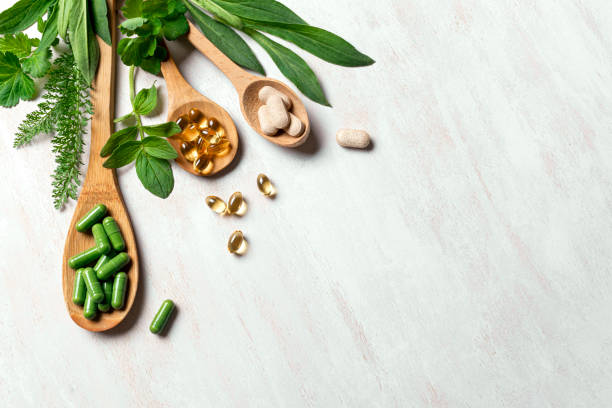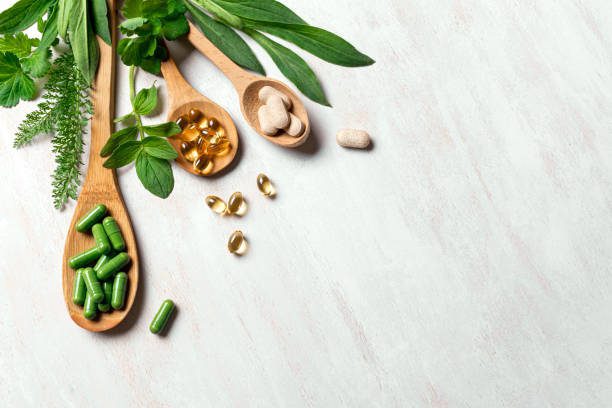The Need for Natural Supplements and Herbs in Holistic and Homeopathic Care

Recently, there has been a growing interest in natural supplements and herbs as integral components of holistic and homeopathic care. This trend is driven by a desire for more comprehensive, less invasive, and personalized health and wellness approaches.
Natural supplements and herbs are increasingly recognized for their potential to support the body’s natural healing processes and provide various health benefits. Here are several reasons why they are essential in holistic and homeopathic care.
1. Alignment with Natural Body Processes
One of the primary reasons for integrating natural supplements and herbs into holistic care is their alignment with the body’s natural processes. Unlike synthetic drugs, which often work by suppressing symptoms or altering physiological functions, natural supplements, and herbs aim to support and enhance the body’s inherent healing capabilities.
For instance, herbs like Echinacea and elderberry are believed to boost the immune system, helping the body fight off infections more effectively.
2. Fewer Side Effects
Natural supplements and herbs are generally associated with fewer side effects than conventional pharmaceuticals. This is particularly important for individuals with chronic conditions or those who are sensitive to the adverse effects of synthetic drugs.
Herbs such as ginger and peppermint, for example, are commonly used to alleviate digestive issues without causing the gastrointestinal distress that can accompany some over-the-counter medications.
3. Holistic Approach to Health
Holistic care emphasizes treating the whole person—body, mind, and spirit—rather than just addressing isolated symptoms. Natural supplements and herbs play a crucial role in this approach by providing nutritional support, enhancing mental clarity, and promoting emotional balance.
Adaptogenic herbs like ashwagandha and rhodiola help the body adapt to stress, improving overall well-being and resilience.
4. Support for Chronic Conditions
Many chronic conditions, such as arthritis, diabetes, and cardiovascular diseases, benefit from using natural supplements and herbs long-term.
For example, turmeric, which contains the active compound curcumin, has anti-inflammatory properties that can help manage arthritis pain. Similarly, omega-3 fatty acids, commonly found in fish oil supplements, are known to support heart health and reduce inflammation.
5. Preventative Care
Natural supplements and herbs are not only used for treatment but also for prevention. Vitamins, minerals, and herbal extracts can help fill nutritional gaps, strengthen the immune system, and reduce the risk of various diseases.
For example, vitamin D supplements are often recommended to prevent deficiencies that can lead to bone disorders, while garlic supplements are praised for their cardiovascular benefits.
6. Cultural and Historical Significance
Herbs and natural remedies have been used for centuries across various cultures to promote health and treat ailments. This historical and cultural significance adds a layer of trust and acceptance among people seeking alternative therapies.
Traditional Chinese Medicine (TCM) and Ayurveda, for example, have long incorporated many herbs and natural substances to maintain health and treat disease.
7. Personal Empowerment and Control
Natural supplements and herbs can empower individuals to take a more active role in their health care. This sense of control is essential to holistic and homeopathic philosophies, which advocate for patient-centered care and informed decision-making.
By learning about and using natural remedies, individuals can better understand their health needs and how to address them naturally.
8. Environmental and Ethical Considerations
Many people are drawn to natural supplements and herbs because they are often more environmentally sustainable and ethically produced than synthetic pharmaceuticals. Herbal farming and natural supplement production generally have a lower environmental impact, and many products are sourced from organic and fair-trade practices.

The Best Natural Supplements and Herbs For the Elderly
As people age, maintaining cognitive health becomes increasingly important. Like other organs, the brain can benefit from specific nutrients and natural compounds that support its function and health. Here are some of the best natural supplements and herbs that have been shown to support brain health in the elderly.
1. Ginkgo Biloba
Ginkgo biloba is one of the best-known herbs for brain health. It is believed to improve cognitive function by increasing blood flow to the brain and has antioxidant properties that protect neural cells from damage.
Studies suggest that it can help enhance memory and cognitive speed, making it a popular choice for the elderly who want to maintain their mental acuity.
2. Omega-3 Fatty Acids
Omega-3 fatty acids, particularly EPA and DHA found in fish oil, are crucial for brain health. These essential fats support the structure of brain cell membranes and have anti-inflammatory properties that protect against age-related cognitive decline.
Research indicates that regular consumption of omega-3s can improve memory, reduce the risk of Alzheimer’s disease, and support overall brain function.
3. Curcumin
Curcumin, the active compound in turmeric, has potent anti-inflammatory and antioxidant effects. It crosses the blood-brain barrier, making it particularly effective in protecting brain cells from damage.
Curcumin is believed to enhance brain-derived neurotrophic factor (BDNF). This protein supports the growth and survival of neurons, thus playing a role in improving memory and reducing the risk of neurodegenerative diseases.
4. Bacopa Monnieri
Bacopa monnieri, also known as Brahmi, is an herb traditionally used in Ayurvedic medicine to enhance cognitive function. Bacopa is known for improving memory, attention, and visual information processing.
It contains compounds called bacosides, which help repair damaged neurons and improve synaptic communication.
5. Rhodiola Rosea
Rhodiola rosea is an adaptogenic herb that helps the body adapt to stress. It has been shown to reduce fatigue, anxiety, and depression, which can indirectly benefit cognitive health. Rhodiola is also believed to improve memory and learning capacity, making it a valuable supplement for the elderly seeking to maintain mental sharpness.
6. Vitamin B12
Vitamin B12 is essential for the proper functioning of the brain and nervous system. It plays a crucial role in producing myelin, the protective sheath around neurons, and synthesizing neurotransmitters. A deficiency in B12 can lead to memory loss, confusion, and even dementia. Since the ability to absorb B12 decreases with age, supplementation is often recommended for older adults.
7. Ginseng
Ginseng, particularly Panax ginseng, is another herb known for its cognitive-enhancing properties. It is believed to improve mental performance, including memory, concentration, and reaction time. Ginseng has antioxidant properties that protect brain cells from damage and can help reduce mental fatigue.
8. Ashwagandha
Ashwagandha is an adaptogenic herb widely used in Ayurvedic medicine. It helps reduce stress and anxiety, which can positively impact cognitive function. Ashwagandha has been shown to promote neurogenesis (the growth of new neurons) and improve memory and cognitive abilities.
9. Phosphatidylserine
Phosphatidylserine is a phospholipid key component of cell membranes, particularly in brain cells. It plays a critical role in maintaining cell structure and function. Supplementation with phosphatidylserine has improved memory, cognitive function, and mood in the elderly.
10. Resveratrol
Resveratrol is a polyphenol in grapes, red wine, and certain berries. It has potent antioxidant and anti-inflammatory properties that protect the brain from age-related damage. Resveratrol enhances cerebral blood flow and may improve memory and cognitive function in older adults.
Conclusion
Maintaining brain health in the elderly is crucial for preserving independence and quality of life. Natural supplements and herbs offer a promising way to support cognitive function without the side effects of many pharmaceutical drugs.
Ginkgo biloba, omega-3 fatty acids, curcumin, Bacopa monnieri, Rhodiola rosea, vitamin B12, ginseng, ashwagandha, phosphatidylserine, and resveratrol are among the best natural options available.
These supplements and herbs enhance memory and cognitive function, protect the brain from age-related damage, reduce stress and anxiety, and promote overall well-being.
However, elderly individuals need to consult with healthcare providers before starting any new supplement regimen. This ensures that the supplements do not interact with existing medications and are appropriate for their specific health needs.
With proper guidance, natural supplements and herbs can play a significant role in maintaining and enhancing brain health in the elderly.
